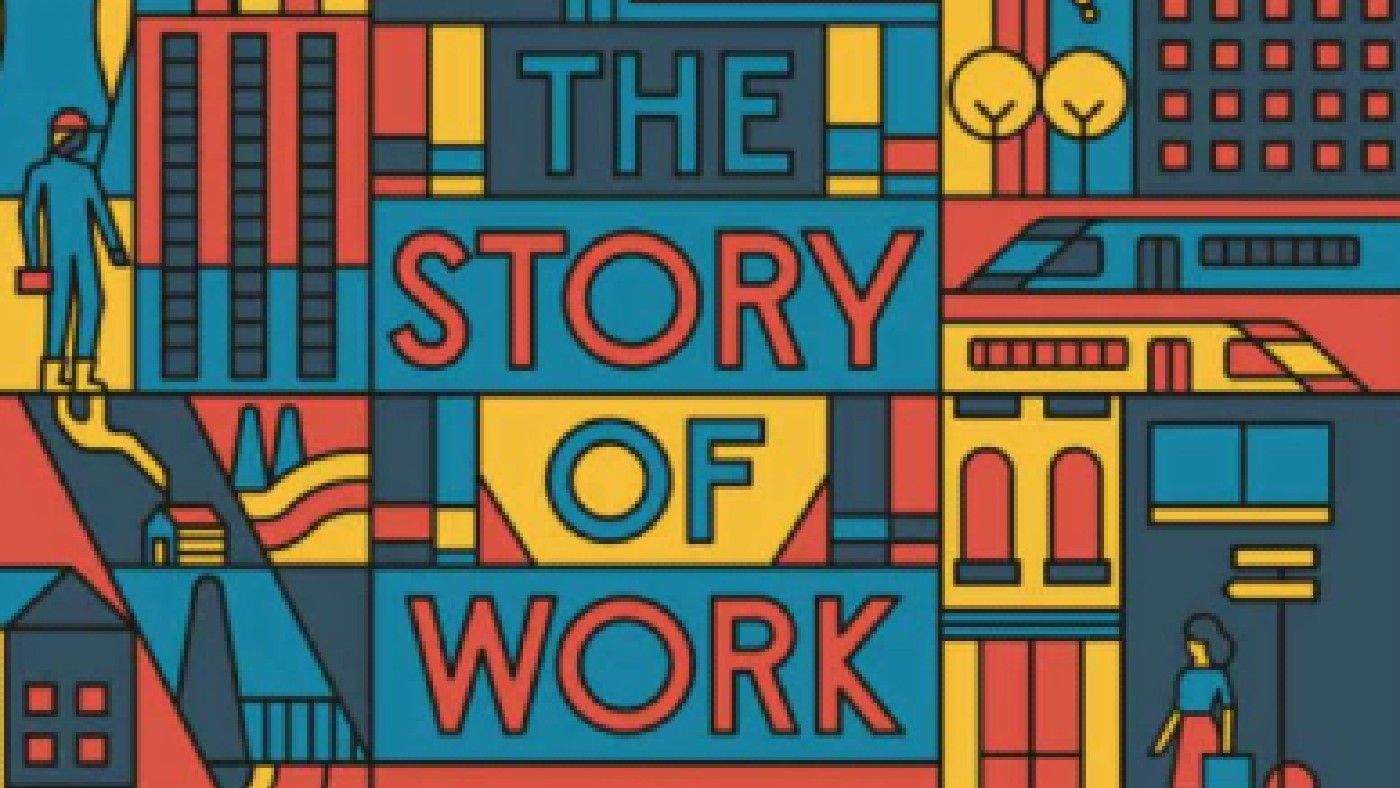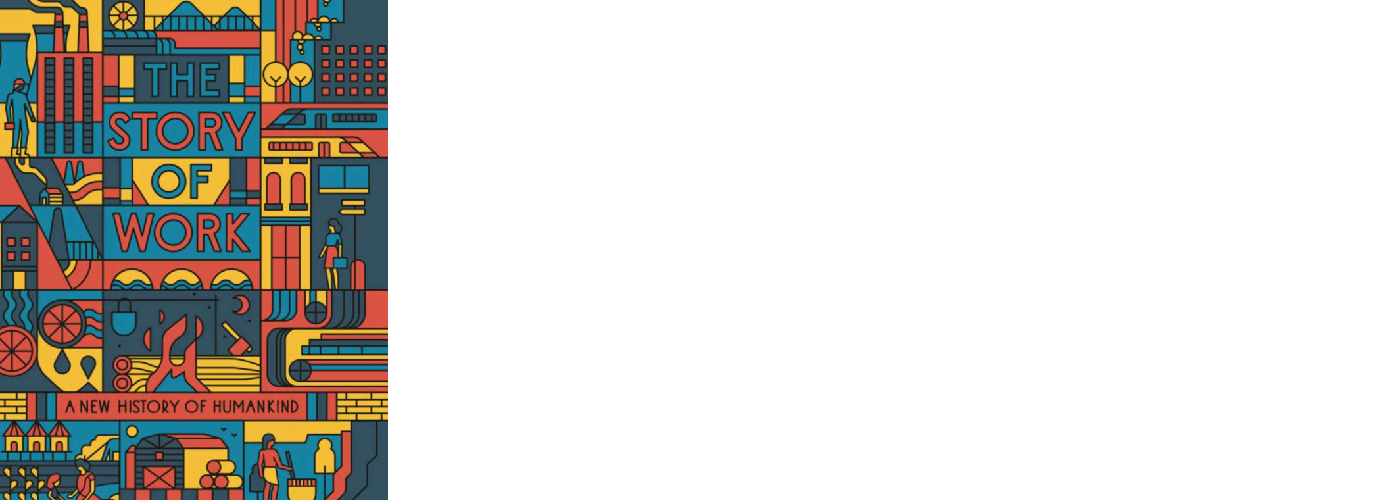Book of the week: The Story of Work by Jan Lucassen
Lucassen, a Dutch historian, sets out to ‘chronicle the history of human work’

A free daily email with the biggest news stories of the day – and the best features from TheWeek.com
You are now subscribed
Your newsletter sign-up was successful
Fittingly, a vast amount of labour has gone into this book, said Christina Patterson in The Guardian. In it, Jan Lucassen, a Dutch historian, sets out to “chronicle the history of human work, from our first strides as Homo sapiens 700,000 years ago to the rise of the robot now”.
He begins his account in the hunter-gatherer period – which accounts for 98% of human history. Although less blissful than is often supposed (stalking mammoths was no picnic), hunter-gatherer societies were more egalitarian and cooperative than any that have existed since.
Around 12,000 years ago, agriculture emerged, and this eventually generated the increased yields that made it possible for some people to start doing other types of work. “The seeds were sown for the stratified societies we live in now.”
The Week
Escape your echo chamber. Get the facts behind the news, plus analysis from multiple perspectives.

Sign up for The Week's Free Newsletters
From our morning news briefing to a weekly Good News Newsletter, get the best of The Week delivered directly to your inbox.
From our morning news briefing to a weekly Good News Newsletter, get the best of The Week delivered directly to your inbox.
While a book on this scale could have been “full of vague extrapolations”, Lucassen is a lively writer with an eye for the arresting detail. “The result is an encyclopaedic survey that’s also a whistle-stop tour of human history – and it’s absolutely fascinating.”
As “people learnt to wring more output from the land, they built the basis of modern human existence”, said The Economist. Not only did the first professions emerge, but also notions of private property (whose roots, Lucassen suggests, lay in livestock farming). “From around 7,000 years ago the first great cities arose, in Mesopotamia and then South and East Asia.”
In these more complex societies, new working arrangements appeared, including servitude, self-employment and – crucially – wage labour. The latter, Lucassen suggests, eventually combined with “standardised, low-denomination coinage” to produce the “economic magic” that came with “true markets”.
It must be said that reviewing this book often felt like “work, not play”, said James Marriott in The Times. Amid the “daunting subheadings”, and detailing of arcane academic debates, it was hard to discern an “overarching theme”. Yet if one key idea does emerge, it’s the way that, particularly in the modern era, work has “increasingly monopolised human time and human psychology”.
A free daily email with the biggest news stories of the day – and the best features from TheWeek.com
When Lucassen’s survey arrives at the present, his “central and abiding worry” becomes clear, said Simon Ings in The Daily Telegraph. He fears that with the rise of automation and technological surveillance, slavery – a “depressing constant” of recorded history – will make a strong return. It’s a bleak note on which to end a book that, though exhausting, is enlightening – and “full of colour, surprise and human warmth”.
Yale University Press 544pp £25; The Week Bookshop £19.99

The Week Bookshop
To order this title or any other book in print, visit theweekbookshop.co.uk, or speak to a bookseller on 020-3176 3835. Opening times: Monday to Saturday 9am-5.30pm and Sunday 10am-4pm.
-
 The environmental cost of GLP-1s
The environmental cost of GLP-1sThe explainer Producing the drugs is a dirty process
-
 Greenland’s capital becomes ground zero for the country’s diplomatic straits
Greenland’s capital becomes ground zero for the country’s diplomatic straitsIN THE SPOTLIGHT A flurry of new consular activity in Nuuk shows how important Greenland has become to Europeans’ anxiety about American imperialism
-
 ‘This is something that happens all too often’
‘This is something that happens all too often’Instant Opinion Opinion, comment and editorials of the day
-
 Arcadia: Tom Stoppard’s ‘masterpiece’ makes a ‘triumphant’ return
Arcadia: Tom Stoppard’s ‘masterpiece’ makes a ‘triumphant’ returnThe Week Recommends Carrie Cracknell’s revival at the Old Vic ‘grips like a thriller’
-
 My Father’s Shadow: a ‘magically nimble’ love letter to Lagos
My Father’s Shadow: a ‘magically nimble’ love letter to LagosThe Week Recommends Akinola Davies Jr’s touching and ‘tender’ tale of two brothers in 1990s Nigeria
-
 Send Help: Sam Raimi’s ‘compelling’ plane-crash survival thriller
Send Help: Sam Raimi’s ‘compelling’ plane-crash survival thrillerThe Week Recommends Rachel McAdams stars as an office worker who gets stranded on a desert island with her boss
-
 Book reviews: ‘Hated by All the Right People: Tucker Carlson and the Unraveling of the Conservative Mind’ and ‘Football’
Book reviews: ‘Hated by All the Right People: Tucker Carlson and the Unraveling of the Conservative Mind’ and ‘Football’Feature A right-wing pundit’s transformations and a closer look at one of America’s favorite sports
-
 Catherine O'Hara: The madcap actress who sparkled on ‘SCTV’ and ‘Schitt’s Creek’
Catherine O'Hara: The madcap actress who sparkled on ‘SCTV’ and ‘Schitt’s Creek’Feature O'Hara cracked up audiences for more than 50 years
-
 6 gorgeous homes in warm climes
6 gorgeous homes in warm climesFeature Featuring a Spanish Revival in Tucson and Richard Neutra-designed modernist home in Los Angeles
-
 Touring the vineyards of southern Bolivia
Touring the vineyards of southern BoliviaThe Week Recommends Strongly reminiscent of Andalusia, these vineyards cut deep into the country’s southwest
-
 Nan Goldin: The Ballad of Sexual Dependency – an ‘engrossing’ exhibition
Nan Goldin: The Ballad of Sexual Dependency – an ‘engrossing’ exhibitionThe Week Recommends All 126 images from the American photographer’s ‘influential’ photobook have come to the UK for the first time